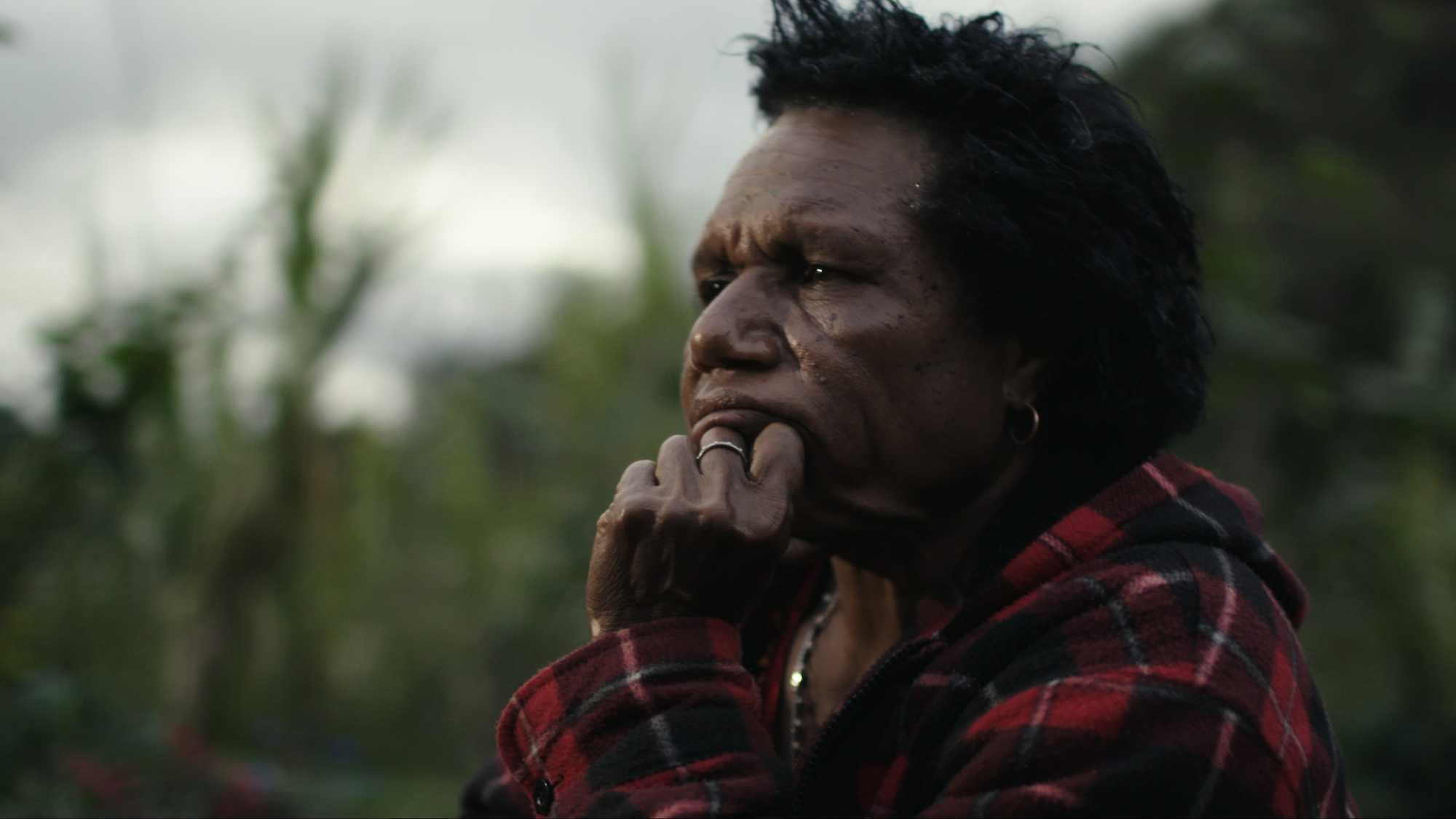Paul Wolffram’s urgent documentary takes us into the remote highlands of Papua New Guinea and one indigenous woman’s fight against the insidious influence of sanguma – sorcery violence.

Evelyn's work is having a real impact on the lives of the survivors … the film reveals the power of an individual to help bring about significant change even in the face of seemingly insurmountable odds.
Screened as part of 2024
Marimari 2024
In an Eastern Highlands town of Papua New Guinea, a baby falls sick and does not recover; this is grounds for women of the village and their families to be accused of sanguma, a type of witchcraft or black magic. They are left with a difficult choice; abandon their home and flee into the bush or face retribution at the hands of their accusers. It’s just one case of a violent epidemic that continues to grow within the country. Displaced survivors of sorcery-accusation-related violence (SARV) find themselves alone and unsupported, the police unwilling or unable to investigate the majority of cases.
The observational lens of Kiwi documentary filmmaker Paul Wolffram takes the audience deep into lushly forested landscapes to hear harrowing first-hand accounts from both survivors and perpetrators.
It’s a distressing situation, but the beating heart of this hard-nosed investigation is Evelyn Kunda, a human rights worker who has devoted herself entirely to rescuing and protecting those fleeing sorcery accusations. Having seen big non-governmental organisations fail to tackle the problem on the ground, she leads an indefatigable resistance of indigenous compassion work (marimari) – cooking meals for kids living rough, opening her home to those in need, and establishing safehouses for families.
The natural beauty of Papua New Guinea is gracefully shot, providing a stunning contrast to the adversity faced by many of the accused, just as Evelyn’s unflagging compassion shines so bright in difficult circumstances. Marimari is a hopeful, necessary, urgent call to action. — Adrian Hatwell